
Copernical Team
Rocket Lab pushes back attempt of mid-air booster catch to Sunday
 Citing weather concerns, Rocket Lab pushed back its 26th launch Friday with plans to attempt to recover a first-stage booster with a helicopter on Sunday.
"The weather has improved through the week, but the forecast is showing the best wind and cloud cover conditions a few days from now, so we're targeting no earlier than 1 May ... for launch," the California-based aerospace company said.
Citing weather concerns, Rocket Lab pushed back its 26th launch Friday with plans to attempt to recover a first-stage booster with a helicopter on Sunday.
"The weather has improved through the week, but the forecast is showing the best wind and cloud cover conditions a few days from now, so we're targeting no earlier than 1 May ... for launch," the California-based aerospace company said. 50 years on, Apollo 16 moonwalker still 'excited' by space
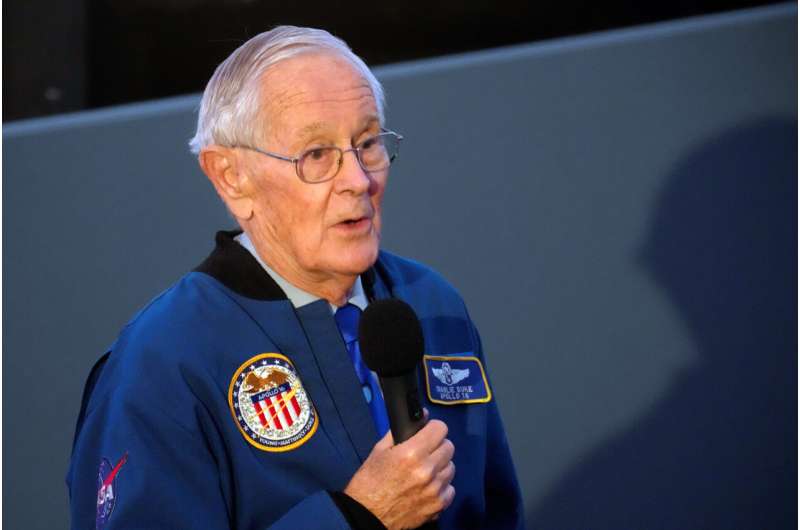
Fifty years after his Apollo 16 mission to the moon, retired NASA astronaut Charlie Duke says he's ready for the U.S. to get back to lunar exploration.
Part of that effort, Duke said Friday, will come in the form of the Artemis program, which includes NASA's upcoming flight to the moon using its new Space Launch System rocket.
Blasting Earth's location out to potential aliens is a controversial idea. Two teams of scientists are doing it anyway
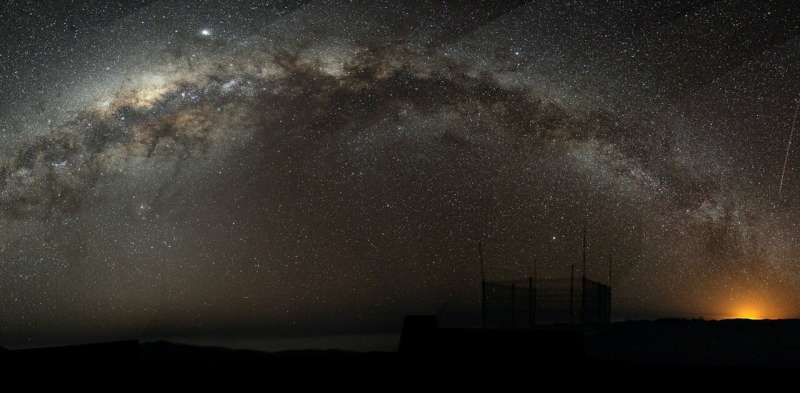
If a person is lost in the wilderness, they have two options. They can search for civilization, or they could make themselves easy to spot by building a fire or writing HELP in big letters. For scientists interested in the question of whether intelligent aliens exist, the options are much the same.
For over 70 years, astronomers have been scanning for radio or optical signals from other civilizations in the search for extraterrestrial intelligence, called SETI. Most scientists are confident that life exists on many of the 300 million potentially habitable worlds in the Milky Way galaxy.
UAE to send astronaut on six-month ISS mission

The United Arab Emirates announced Friday it will send an astronaut on a six-month mission to space, as it seeks to become a major player in the industry.
The wealthy Gulf country signed "a new agreement to send the first Arab astronaut on a long 180-day mission to the International Space Station", tweeted UAE's vice president, Dubai ruler Sheikh Mohammed bin Rashid Al-Maktoum.
"Proud of the UAE's youth," he added.
According to the UAE's The National newspaper, the Mohammed bin Rashid Space Centre (MBRSC) and Axiom Space signed a deal on Wednesday at the Emirati embassy in Washington.
Black holes

What are black holes? How do they form and evolve? What effect do they have on their surroundings and the rest of the Universe – and why should we care about them?
Cosmic Kiss mission overview
 Video:
00:04:00
Video:
00:04:00
German ESA astronaut Matthias Maurer has almost completed his first stay aboard the International Space Station ISS.
Named Cosmic Kiss, the mission began with the third crewed launch of the SpaceX Crew Dragon on 11 November 2021 when Matthias flew to the ISS alongside @NASA astronauts Kayla Barron, Raja Chari and Tom Marshburn, collectively known as Crew-3.
Matthias has now spent around six months in orbit, working on over 35 European and many more international science experiments and taking part in operational procedures. He has also become the 12th ESA astronaut to conduct a spacewalk, or Extra-Vehicular Activity (EVA).
Week in images: 25-29 April 2022
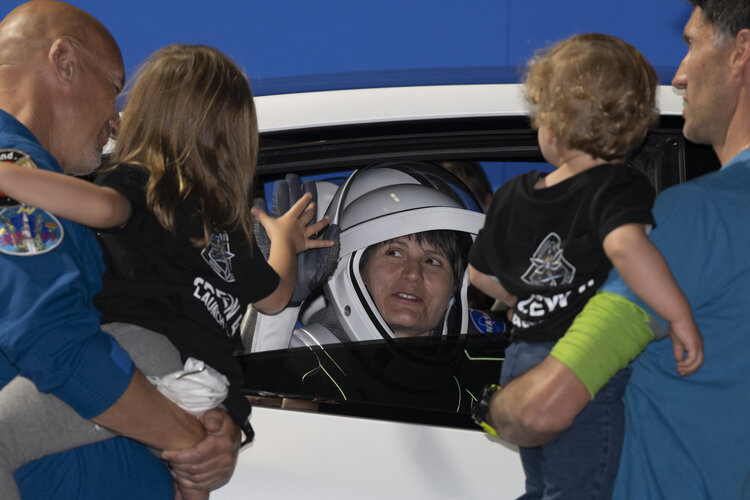
Week in images: 25-29 April 2022
Discover our week through the lens
Heatwave across India
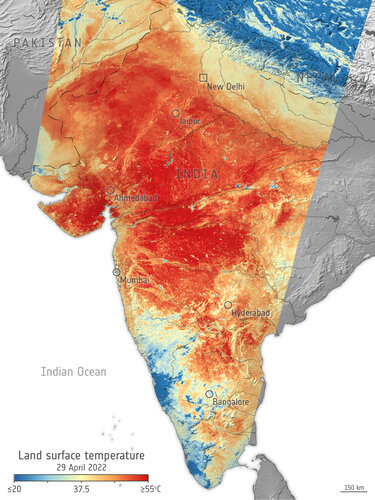 Image:
India is currently facing a prolonged heatwave, with temperatures exceeding 42°C in numerous cities across the country. This map, generated using data from Copernicus Sentinel-3, shows the land surface temperature on 29 April.
Image:
India is currently facing a prolonged heatwave, with temperatures exceeding 42°C in numerous cities across the country. This map, generated using data from Copernicus Sentinel-3, shows the land surface temperature on 29 April. Earth from Space: Mount Aso, Japan
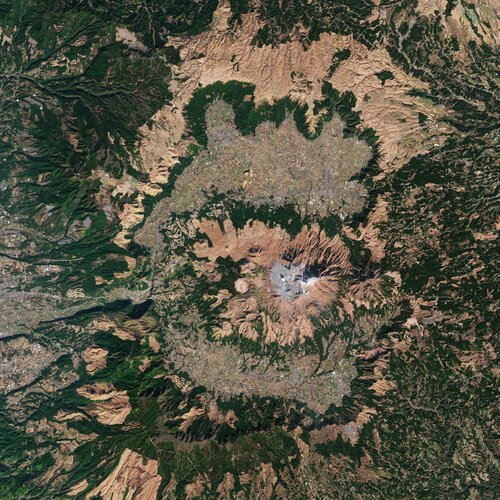
Mount Aso, the largest active volcano in Japan, is featured in this image captured by the Copernicus Sentinel-2 mission.
Fireball spotted over southern Mississippi, NASA confirms
A loud boom prefaced a streaking fireball spotted in three Southern states, scientists confirmed Thursday.
More than 30 people in Arkansas, Louisiana and Mississippi reported seeing the exceptionally bright meteor in the sky around 8 a.m. Wednesday after hearing loud booms in Claiborne County, Mississippi, and surrounding areas, NASA reported. It was first spotted 54 miles (87 kilometers) above the Mississippi River, near Alcorn, Mississippi, officials said.
"This is one of the nicer events I have seen in the GLM (Geostationary Lightning Mappers) data," said Bill Cooke, lead of NASA's Meteoroid Environments Office at Marshall Space Flight Center in Huntsville, Alabama.
The object, which scientists called a bolide, moved southwest at a speed of 55,000 miles per hour (88,500 kilometers per hour), breaking into pieces as it descended deeper into Earth's atmosphere. It disintegrated about 34 miles (55 kilometers) above a swampy area north of the unincorporated Concordia Parish community of Minorca in Louisiana.
One witness told the Vicksburg Post that she heard a loud noise and then looked up and saw an "orange fireball the size of a basketball, with a white tail behind it," heading west toward the Mississippi River.
The Claiborne County Emergency Management Agency posted a statement on Facebook confirming the reports and noting that Grand Gulf Nuclear Station was not involved.
































